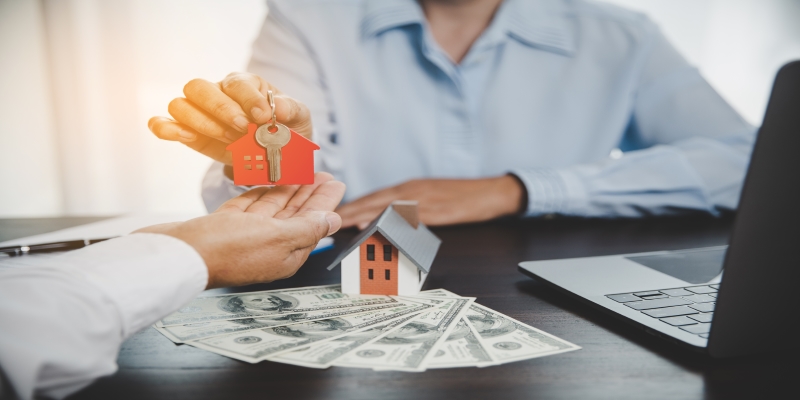When you're in the market for a new home, Home Buyers' Agents can be invaluable allies. They help you navigate the complexities of home buying, from finding the right property to negotiating the best price. But have you ever wondered how these agents get paid? Understanding their compensation can help you appreciate the value they bring and ensure you get the most out of your home-buying experience.
How to Do Home Buyers' Agents Get Paid - 10 Ways
Here are ten common ways Home Buyers' Agents earn their income:
Commission from the Sale
The most common way Home Buyers' Agents earn their money is through a Real Estate Commission. This commission is usually a percentage of the home's final sale price. In most cases, the seller pays the commission, which is then split between the seller's agent and the buyer's agent.
If a home sells for $300,000 and the total commission is 6%, the seller's agent and the buyer's agent each receive 3%, or $9,000 each. This commission structure ensures that both agents are motivated to complete the sale, aligning their interests with those of the buyer.
Retainer Fees
Some Home Buyers' Agents charge a retainer fee upfront. This is a non-refundable fee paid by the buyer to ensure the agent's services. Retainer fees are less common but can be a way for agents to secure some payment for their time and effort, especially in competitive markets.

A buyer might pay a $500 retainer fee to secure an agent's services for a specified period or until a successful purchase is made. This fee often goes towards the final commission, offsetting some costs for the buyer.
Hourly Rates
In some situations, Home Buyers' Agents might charge by the hour. This method is less traditional but offers transparency and flexibility. Hourly rates can be beneficial for buyers who need specific services or advice rather than full-service representation throughout the entire buying process.
An agent might charge $100 per hour for consultation, property tours, and negotiation assistance. This pay-as-you-go approach can be ideal for buyers who only need help with certain aspects of the buying process.
Flat Fees
Another payment method is a flat fee. This is a set amount agreed upon at the beginning of the relationship, regardless of the home's sale price. Flat fees provide predictability and can be more economical for buyers purchasing lower-priced properties.
An agent might charge a flat fee of $2,500 for complete representation from start to finish, regardless of the home's final sale price. This method eliminates the variable nature of commission-based fees, providing clear and upfront costs.
Bonuses
In some cases, Home Buyers' Agents might receive bonuses for closing deals quickly or under certain favorable terms. These bonuses can come from the brokerage they work for or directly from the buyer or seller as an incentive for exceptional performance.
A brokerage might offer a $1,000 bonus for agents who close a deal within 30 days. Bonuses are additional incentives that reward agents for outstanding performance.
Percentage of Savings
Some agents offer a unique payment structure where they earn a percentage of the money they save you. This means their fee is based on how much they can negotiate off the listing price. This can align the agents interests with your goal of getting the best possible deal.
If an agent negotiates $10,000 off the listing price and their fee is 10% of the savings, they will earn $1,000. This method directly ties the agent's earnings to their negotiation skills.
Hybrid Models
Hybrid models combine elements of different payment methods to provide a more tailored approach. For instance, an agent might charge a lower commission rate but include a small retainer fee or hourly rate for specific services. This method offers flexibility and can be customized to suit different needs and budgets.
An agent might charge a 2% commission on the sale price plus a $500 retainer fee for initial consultations and property searches. Hybrid models offer a blend of payment structures to meet the specific needs of both the buyer and the agent.
Success Fees
Success fees are paid when the agent meets certain agreed-upon milestones or performance metrics. These can include closing the deal within a specific timeframe, finding a property within a certain budget, or securing favorable financing terms. Success fees can incentivize agents to achieve the best outcomes for their clients.

An agent might receive a $2,000 success fee if they close a deal within 45 days or secure a home for at least 5% below the asking price. This method ensures that the agent is highly motivated to deliver results that align with the buyer's objectives.
Subscription Services
In contemporary real estate practices, some services operate on a subscription basis, where clients pay a monthly fee to access an agent's services. This model can be beneficial for buyers who have been in the market for an extended period and need ongoing support and advice without paying large sums upfront or at the end of the transaction.
A buyer might pay $100 per month for continuous access to an agent's services, including property searches, market analysis, and negotiation support. Subscription services provide continuous access to an agent's expertise and resources.
Rebates
Rebates are a way for agents to give back a portion of their commission to the buyer. This can be an attractive option for buyers looking to save on closing costs. However, it's essential to check the legality and regulations around rebates in your area, as they can vary by state or country.
If an agent earns a 3% commission on a $300,000 home sale (equivalent to $9,000), they might offer a rebate of $1,500 back to the buyer. Rebates can be a significant financial incentive for buyers.
Conclusion
Understanding how Home Buyers' Agents get paid helps you choose the best arrangement for your needs. Options like percentage of savings, hybrid models, success fees, subscription services, and rebates each offer unique benefits. Discuss these methods with your agent to find a structure that ensures a successful home-buying experience, keeping both you and your agent motivated and satisfied.

What is the Cash Price? Insights into Financial Terminology

Navigating the World of Membership Organizations and Their Impact on Health Insurance

Everything You Need to Know About COBRA Insurance: An Ultimate Guide

Understanding FICA Tax: A Comprehensive Guide

Different Ways Home Buyers' Agents Earn Their Money

Guide to Penalty-Free Early Withdrawals from Your IRA

Ways To Report 1099-MISC Box 3 Payments on Your 1040 for Tax Year

Strategies for Managing Fixed-Income Securities

The Ultimate Guide to 529 Plan Withdrawals for Private Schooling

Best Dental Insurance for Braces of 2023

What Is Expected Value (EV)?
